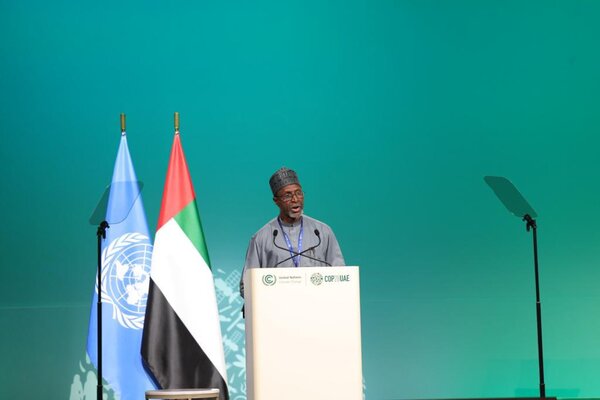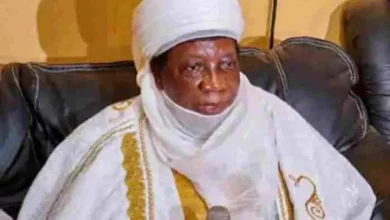Minister of environment delivers national statement on behalf of President Tinubu at COP28


Minister of environment, Balarabe Lawal, has said Nigeria will not relent in its commitment to do its part in the global battle against climate change.
Delivering the national statement on behalf of President Bola Tinubu at the COP28 on Saturday, Lawal stated that Nigeria, a nation of more than200 million people, grapples with both development and climate change.
He noted that finding solution to one problem and not the other will make both to fail, noting that Nigeria needs investments on a large scale, using gas as a transition fuel as well as in renewable energy.
“As the leader of over two hundred million diverse people spread across an equally diverse geography, I know my country must contend with both development and climate change,” the environment minister said.
Continuing, he said, “To treat one but not the other, will cause us to fail at both. Thus, despite the challenges, my country will continue to do its part in fighting this collective menace.
“Pursuant to our ‘decade of gas’ policy, we now seek to shift from oil, coal and wood to using cleaner gas. We seek large-scale investment in this area as well as in renewable energy.”
He noted that investments in Nigeria will enable the nation to grow on the green wall, enhance water and flood management efforts and enhance agricultural productivity and food security.
Speaking on how NNPC Limited became the first national oil company in Africa to endorse the Global Oil & Gas Decarbonization Accelerator (OGDA), Tinubu said Nigeria is committed to contribute to the effort to decarbonise the world economy.
“Our vast renewable energy resources present an opportunity for sustainable growth. We call for strong and decisive collaboration in unlocking these resources for the benefit of our people and the world at large.”
He said “developing economies cannot be pressured into bearing a disproportionate share of the burden,” thus the framework of a sustainable climate change solution cannot mirror the “extant imbalances” of the current global economic order.
He noted that the wealthy and powerful countries cannot continue to do as they want to while the poor countries endure because “those who benefit most from the current system have the onus to invest the most in repairing the environmental breaches we now suffer”.




